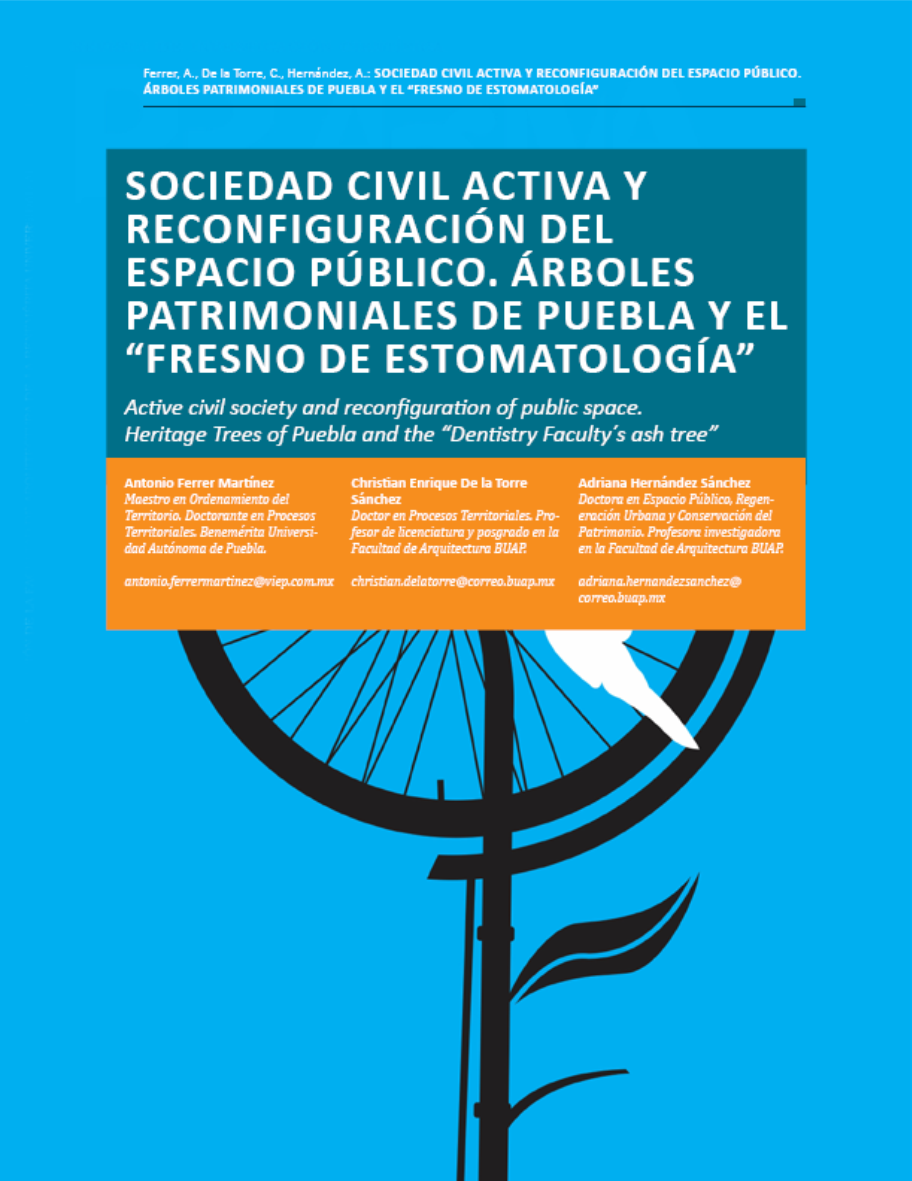Active civil society and reconfiguration of public space. Heritage Trees of Puebla and the “Dentistry Faculty´s ash tree”

Published 2024-10-05
Keywords
- civil society,
- public space,
- notable trees,
- management
How to Cite

This work is licensed under a Creative Commons Attribution-NonCommercial-NoDerivatives 4.0 International License.
Abstract
As a specimen monitored by the citizen initiative Heritage Trees of Puebla, the “Fresno de Estomatología” (Faculty of Dentistry Ash tree) exemplifies a significant part of the adversities faced by most urban trees in the City of Puebla. Invasion by urban infrastructure, cars and social dynamics, as well as aggressive pruning of the specimen, are part of the conditions of permanence in which the individual was found. Situation fostered by the absence of regulatory instruments and public policies for adequate management of urban trees in general, as well as specimens of a “notable” nature in particular. In this context, this paper aims to address a case referring to the processes of incidence of organized civil society, in the appropriation and reconfiguration of public space from the management and intervention around a tree specimen of a notable nature, after a crisis point derived from the fire of the specimen. This fact triggered pruning actions, expansion of the flowerbed, soil improvement, workdays on site, placement of vegetation and a neighborhood monitoring group. In conclusion, organized civil society is recognized as an increasingly relevant actor in the positioning of topics on the agenda of urban trees and public spaces that are frequently neglected by public administration, while promoting processes of empowerment, appropriation and transformation of spaces by local communities in collaboration with activists and specialists in the subject.
